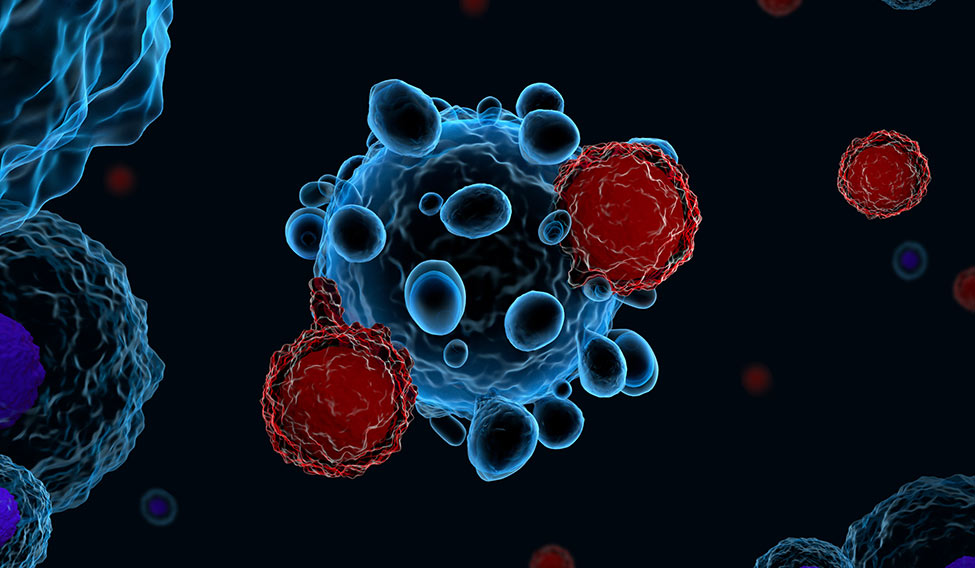The last year has been a happening one in the field of cancer research and treatment. Two new immunotherapy drugs were approved by the Food and Drug Administration in the US. Oncologists are excited and many term this as the game changer in cancer treatment.
On August 30, 2017, the FDA had approved the first gene therapy treatment in the US. The therapy initially called CAR (Chirmeric Antigen Receptor) T-cell immunotherapy, and now named Kymriah by Novartis, was approved to treat children and young adults with a recurrent form of the blood cancer called acute lymphoblastic leukaemia (ALL). Close to the first approval, FDA approved a second CAR T-cell therapy in October. Axicabtagene ciloleucel (Yescarta treatment by Kite Pharma) had received approval for the treatment of patients with relapsed/refractory aggressive B-cell non-Hodgkin lymphoma (NHL), who are ineligible for autologous stem cell transplant.
To understand the significance of these approvals, we need to understand some basic concepts.
IMMUNOTHERAPY AND CAR T-CELL THERAPY
Immunotherapy is treatment that uses certain parts of a person’s immune system to fight diseases such as cancer. Normally, our immune system is programmed to identify foreign invaders and crush them decisively. But cancer, arising out of one or more mutations in our DNA, is a threat that is deceptive, since these cells cloak themselves in a garb that confuses the immune system.
In CAR T-cell therapy, every dose of treatment is unique and personalised. That is because the technology involves extracting a patient’s immune cells, using genetic technology to make them home in on (and destroy) cancerous cells, and then re-inserting these powerful new cancer killers into the patient.
Let us see how Kymriah works. Novartis's Kymriah isn't your run-of-the-mill pill, like insulin, that can be mass-produced. Since the therapy is made from a person's own immune system, the process can take about three weeks.
* The doctor removes some of the patient's white blood cells, which are responsible for combating pathogens.
* These cells are taken to Novartis's manufacturing facility in New Jersey, and reengineered to recognise cancer cells and wipe them out.
* The reprogrammed cells are sent back and administered to the patient. The new cells try to kill the cancer cells.
HOW KYMRIAH IS DIFFERENT
Traditional therapies like chemotherapy and radiation only target cancer cells and tumours themselves. You need different types of drugs depending on the type of cancer, and once you stop giving a person the treatment, it quickly leaves the body or stops working. This treatment targets the person’s immune system and equips it to fight the cancer.
Of course, like all therapies, this is not without its dangers. One of the biggest obstacles doctors and researchers face is handling the immune response. When you catch the flu or any infection, the fevers, aches and pains that you get are not from the invading bacteria or virus itself, but from your immune system fighting it. The same thing happens with Kymriah (and to varying degrees with other immunotherapies, too). When a person receives engineered T-cells, the jolt to their immune system causes extremely high fevers and increases in proteins involved in inflammation. This can be very dangerous. But if the immune system does not generate this massive response, that means the treatment is not working. So, doctors are trying to figure out a way to control these side effects without compromising the effectiveness of the treatment.
THE COST FACTOR
The new drug while being effective, is going to cost a fortune. It is being put on the market with a price tag of $475,000 (Rs 3 crore approx.) for a single infusion.
IMMUNOTHERAPY IN INDIA
Dr Pankaj Malhotra, professor of clinical hematology, Post Graduate Institute of Medical Education & Research (PGIMER), Chandigarh, says that immunotherapy for cancer consists of monoclonal antibodies (mAbs), interferons, CAR T-cell therapies and cancer vaccines. Many of the mAbs are available in India, but CAR T-cell therapy is not available in India at present.
“CAR T-cell therapies have heralded a new era in the treatment of cancer. So, it is definitely very exciting,” says Dr Malhotra. “The cancer care in India is very heterogenous. Corporate hospitals thrive on medical tourism and are likely to offer CAR T-cell therapy to patients who can afford it, when it becomes available. But, the government sector, where majority of cancer patients get treatment, is likely to lag behind. My guess is that it may take a year or two before CAR T-cell therapy is available in India.”
NEXT STEP
Right now, the drug is approved only for ALL at a few cancer centres in the US. Since leukaemia is a cancer of the blood, it is relatively easy for engineered T-cells delivered via blood infusion to find, invade, and kill the diseased cells. That is why doctors have been focusing on that cancer. Figuring out how to use the treatment on other types of cancer, including ones that create solid tumours, is the next big hurdle.
Priya Menon is scientific media editor at TrialX/Applied Informatics Inc. She manages and hosts CureTalks, an international online radio talk show on cancer research and health care.






